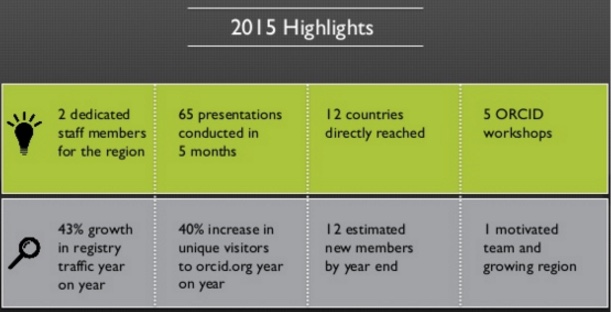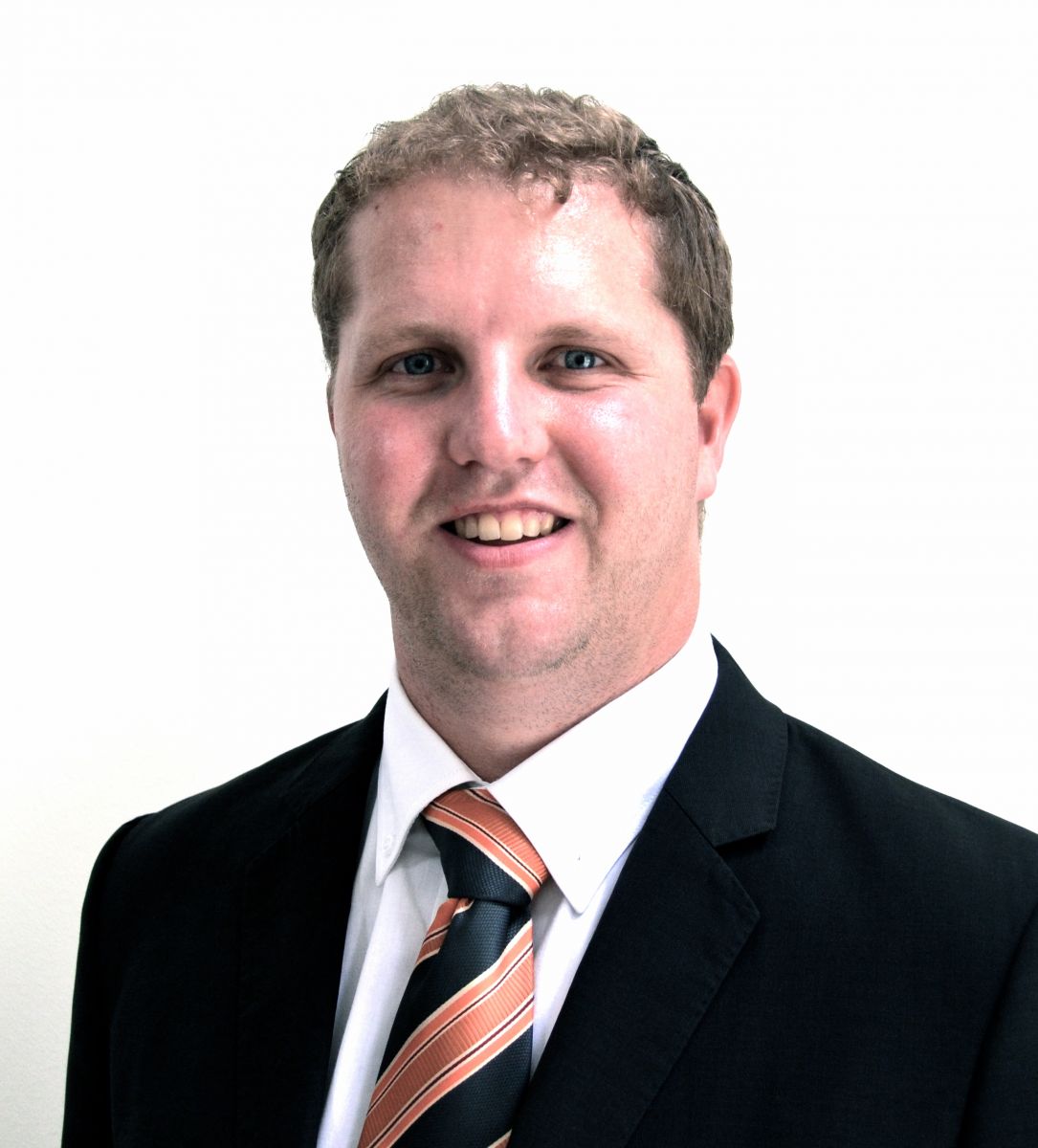The months following my July blog post have been busy and exciting. The Middle East & Africa region is extremely dynamic and has shown a genuine drive towards building the knowledge economy. The region’s institutions — universities, funders, publishers, associations, and repositories — are increasingly aware of the need for a strong research infrastructure to support this growth, and have been showing a strong interest in ORCID.
Today
Engaging with the community and understanding their specific workflows and needs remains an integral part of our work in the region; the table below is a brief snapshot of the highlights this year.

In Africa, we have welcomed two new major funder members, the National Research Foundation of South Africa and our first pan-African funder, the African Academy of Sciences (AAS), who are integrating ORCID with their Accelerating Excellence in Science in Africa (AESA) platform. In Southern Africa, we now have six university members: the University of Cape Town, Stellenbosch University, GIBS Business School, the National Research Foundation of South Africa, North West University and Tshwane University of Technology.
“ORCID will enable us to centralize research outputs and provide a comprehensive overview of research outputs across all three of our campuses”
-Elsa Esterhuizen (Library Director, North West University)
In the Middle East, the Qatar National Research Fund has been integrating ORCID in both grant applications and review work. We have hosted ORCID events in Qatar and the United Arab Emirates, and it was great to see the enthusiasm and high attendance rates at both.
“ORCID will allow universities to get a better understanding of what research is being conducted at their institution”
-Philip Purnell (Director: Research Services at Knowledge E and ORCID Ambassador)
We’ve been delighted by the positive feedback in the region as a result of our activities. Many of these comments were included in our ORCID Around the World video which was released at the ORCID San Francisco Outreach meeting.
Tomorrow
The ball has only just started rolling for ORCID in the Middle East & Africa. 2015 has been a year of review and understanding, and 2016 promises to be a year of integration and adoption. We hope to build upon new partnerships with Sci-GaIA, TANDEM, and WACREN to develop community understanding and use of persistent identifiers in repositories and other research e-infrastructures in Africa, and supporting interactions with European research education networks. While many institutions are finalizing their budgets for 2016, we already have a number of new members who have committed to join over the next two months (watch this space), an encouraging sign of the community coming together in the region.
“ORCID is a modern way to solve an old problem. It provides a persistent link between a researcher and their research output”
Mohamed Baessa (Data Repository Specialist, King Abdullah University of Science & Technology)
I’m looking forward to another exciting year for ORCID in the Middle East & Africa – as well as an exciting year for me personally, as I’m getting married this week, so 2016 will be my first year of married life!
Work in this region is a continuation of ORCID’s growing global outreach program, made possible as a result of a grant from The Leona M. and Harry B. Helmsley Charitable Trust
